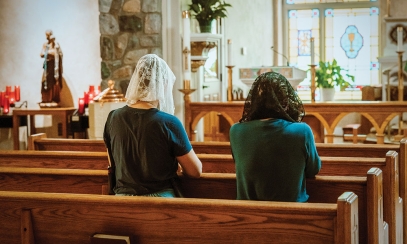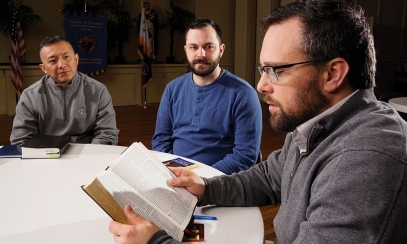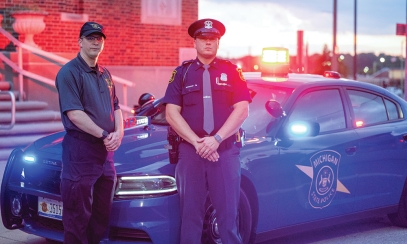The Crosses of Ordinary Times
A harried commuter pushed ahead of you to get through the turnstile at the subway. A fellow driver pretended not to notice that you were waiting to pull into the parking space into which he swooped. The teenage cashier gave you a sullen greeting, at best, and the customer service agent on the telephone spoke with an edge that seemed inappropriate to your innocuous question.
A fellow parishioner did not return your greeting at the Sign of Peace, and yet another blocked your car in the church parking lot without apology. Your supervisor seemed unusually impatient, and your employee seemed to be distracted and inattentive. On the roads, drivers behaving badly were everywhere, and when you tripped on a curb, the person walking behind you did not stop to ask if you were okay.
A colleague on a Zoom call seemed to roll his or her eyes when you made what you believed was a good point. A contact on Facebook made a snarky comment when you posted something about COVID-19. Or politics. Or nearly anything.
We have all known these people. I have been one of these people more than once.
In our age, any offense by another is easily found and even more easily shared. A cross word or a mistake in judgement is no longer a private matter between two imperfect people. Instead, a rowdy toddler is the subject of tweets and re-tweets – as is the adult who complained about the rowdy toddler. A picture of a car in an ill-gained parking spot is publically broadcast, and a disagreement between a student, parent, and teacher becomes fodder for the news in a way that used to be reserved for events of much broader significance.
Certainly, there are acts and omissions beyond the range of conduct that should be tolerated, and there is a line between minor failing and something more that needs a serious response. It is also likely that in many cases, such rude conduct does reflect a horrible lack of respect that runs deeply counter to the way in which we should care for each other – made, as we all are, in the image and likeness of our God.
Yet, it may be worth remembering that it may reflect something else.
Maybe the harried commuter just learned that her mother was seriously injured and needed to make her way home. Maybe the fellow driver who took the parking space spent the morning planning a loved one’s funeral. Maybe the sullen teenager just learned that her parents’ marriage was ending, and the customer service agent spends stressful evenings with a parent who no longer recognizes her.
Maybe the parishioner who did not return your greeting has just lost her job, and maybe the person blocking your car in the parking lot is in the midst of a crisis in faith and lingered behind in church to seek your pastor’s help. Your impatient supervisor may be in the midst of selling her family home with its lifetime of memories, and your inattentive employee may have a 20-something child for whom life has taken a difficult turn. Rude drivers may be en route to events that they dread, and the person who does not extend a helping hand to you may be someone living with an illness that, at least that day, dulled the ability to sympathize with others.
The impatient colleague on the Zoom call may have had three children at home stressing about online classes for almost a year. The snarky Facebook comments about COVID or politics may be made by someone who lost a loved one to the disease or someone gripped with fear for the future – regardless of which side of the aisle he or she calls home.
We have all known these people. I have been one of these people more than once.
The truth is that we never know what lies deep in the hearts of others. I have always been astonished by the ways in which so many people carry such heavy burdens unknown to anyone – even those who know them best. The joys of life are easily shared, but it is a true blessing to have those with whom sorrow can be shared just as easily.
On our good days, we can help our loved ones bear the burdens we know they carry. However, on our very best days, the benefit of the doubt goes to the strangers we do not know. They may be carrying the hidden, heavy crosses of ordinary times.
Lucia A. Silecchia is a Professor of Law at The Catholic University of America. "On Ordinary Times” is a bi-weekly column reflecting on the ways to find the sacred in the simple. Email her at silecchia@cua.edu.



